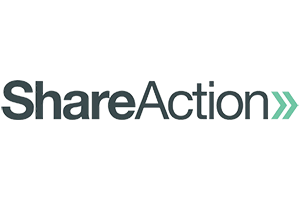With proxy voting season just ahead, ETF fund managers will be casting their votes on a number of shareholder proposals. Given the magnitude of assets controlled by each, issuers like BlackRock, Vanguard and State Street Global Advisors will have an outsized hand in deciding the outcome of these proposals.
As ETFs grow in popularity, with the three largest asset managers taking in the bulk of the assets yet again in 2021, it has further concentrated voting power into the hands of these three companies. Data from Bloomberg estimates that 22% of the shares of the typical S&P 500 company is held by one of those companies, up from 13.5% in 2008.
Despite this growing power, most investors in these popular ETFs likely do not give much thought to this process or the outcome of these proposals. And these votes are generally reported with a significant lag, meaning that even if investors are interested in the outcome, they might not know how these proxy votes were cast.
What is proxy season?
Between April and June, many companies hold their annual meetings. This is an event where, among other matters, shareholders can vote on issues that have been outlined in the proxy statement.
For those who choose to buy ETFs instead of individual stocks, it is the fund manager that holds the voting rights of the underlying securities. The more assets that are controlled by a single manager, the more power this manager has in determining the outcome of a specific proposal.
According to data from ShareAction, a charity that aims to improve corporate behavior on environmental, social and governance (ESG) issues, 18 additional resolutions would have passed in 2021 had one or more of the 'Big Three' voted in favour.
Source: ShareAction
Yet despite each of these managers offeringsocially responsible ETFs, with BlackRock’s iShares having the threelargest ESG-branded ETFsout there, ShareAction found that these companies tend to be less likely to vote in favour of these shareholder resolutions.
Making an impact
As the pandemic and social unrest have brought ESG issues into the spotlight, there has been growing skepticism and accusations of “‘greenwashing.” This term refers to deceptive marketing practices that paint ETFs as being more sustainable or ESG-friendly than they are.
Much of this discussion has been focused on the holdings within these ETFs such as the iShares ESG Aware MSCI USA ETF (ESGU) holding nearly as much exposure to the energy sector as the SPDR S&P 500 ETF Trust (SPY).
Source: FactSet
Portfolio holdings are an easy data point to be critical of since this information is usually offered daily. However, as mentioned earlier, proxy voting information is not as easily accessible even though this information is arguably more impactful in the long run.
This is the rationale underpinning the Engine No.1 Transform 500 ETF (VOTE), an ETF that launched last June. The fund owns a cap-weighted index of large cap U.S. stocks, with no exclusionary screens that are typical of other large cap ESG ETFs.
Instead, the fund encourages transformational change in the public companies it holds by applying proxy voting guidelines and engaging in dialogue with management.
The launch of the ETF happened just weeks after Engine No. 1 won multiple seats on ExxonMobil’s board, giving credence to the fund that has gone on to gather $287m assets.
Increasing transparency
Now, Engine No. 1 has launched aproxy voting dashboardthat discloses how it votes on each proposal at every company held within VOTE’s portfolio. The dashboard shows past and upcoming annual meetings, the various proposals voted on, as well as management’s recommendation and—if the meeting has occurred – Engine No. 1’s vote.
Though the availability of this info further helps to differentiate Engine No. 1 from competitors, it also serves to educate investors on this issue. Michael O’ Leary, managing director at Engine No. 1, thinks that bringing attention to how the largest fund managers vote is of particular importance.
“Ultimately, it is through the passive or active acquiescence of the big index managers that anything actually changes in the capital markets. Our goal is to bring more attention to this issue so the end investor realises they actually have a seat at the table,” he explained.
“They have the power to fashion companies in ways that better align with their decades-long time horizons and their pro-social, pro-environmental interests,” O’Leary added.
End investor has control
If proxy voting information becomes more readily accessible, ESG due diligence could shift from looking at sectors and specific holdings to a deeper focus on how fund managers are voting.
With substitutes easily available within the ETF marketplace for many of the largest passive funds, it gives power to the end investor to vote with their assets by moving their money to the issuer whose votes align most closely with their values.
“Most end investors do not know that annual meetings happen every year, do not know there are things getting voted on like racial equity, gender pay disparities, and climate reporting issues they really care about,” O’Leary explained.
“They do not know their shares are often being cast in ways that directly conflict with their values and long-term interests. Hopefully, this drive toward transparency will help bring attention to it,” he noted.
This story was originally published onETF.com
Related articles







